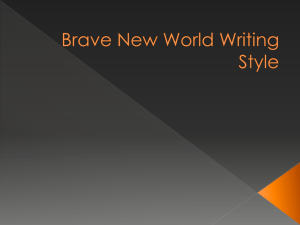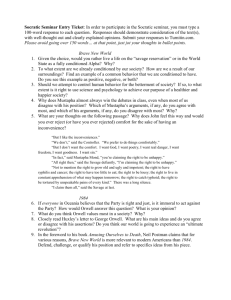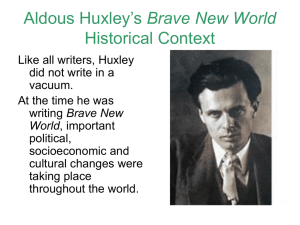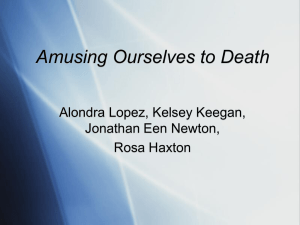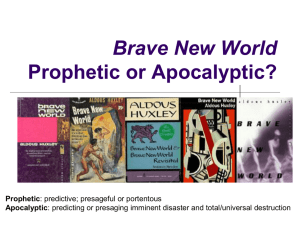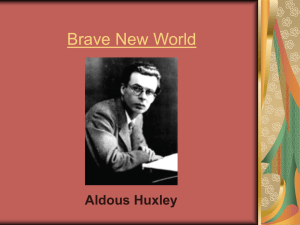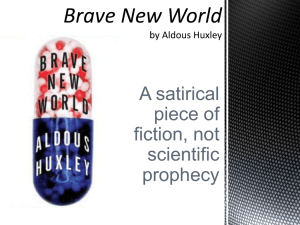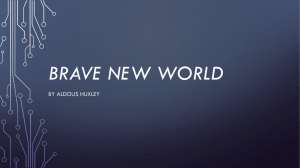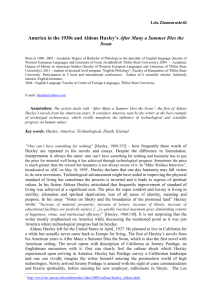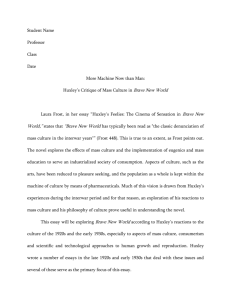Activity 1: Getting Ready to Read In the foreword to his 1985 book
advertisement
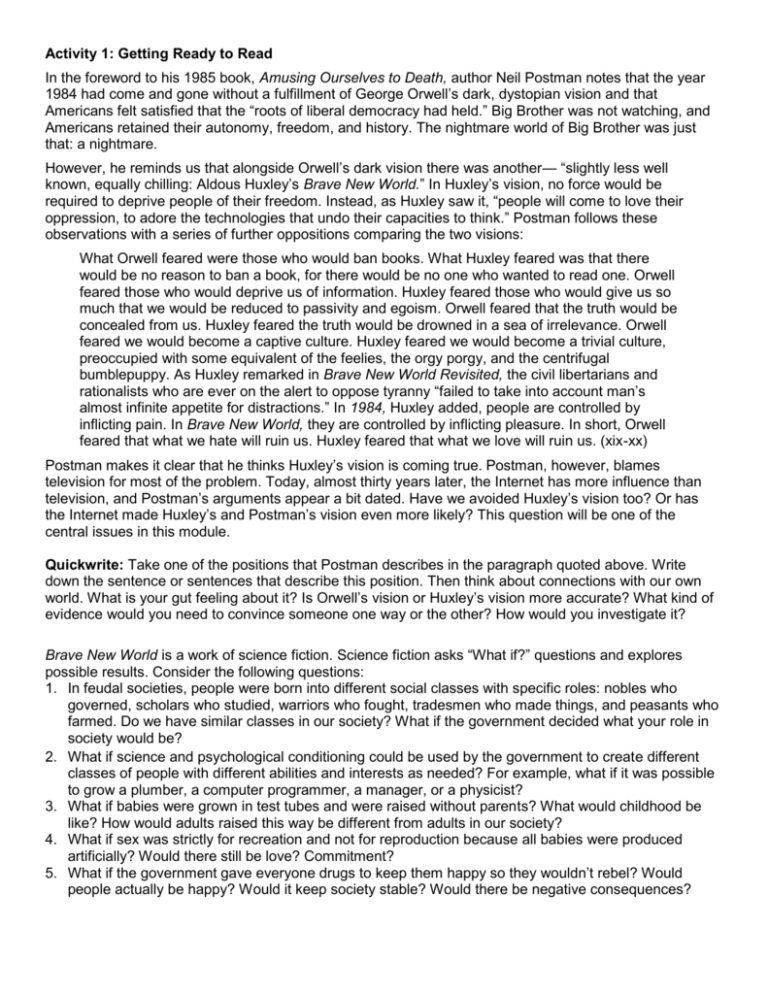
Activity 1: Getting Ready to Read In the foreword to his 1985 book, Amusing Ourselves to Death, author Neil Postman notes that the year 1984 had come and gone without a fulfillment of George Orwell’s dark, dystopian vision and that Americans felt satisfied that the “roots of liberal democracy had held.” Big Brother was not watching, and Americans retained their autonomy, freedom, and history. The nightmare world of Big Brother was just that: a nightmare. However, he reminds us that alongside Orwell’s dark vision there was another— “slightly less well known, equally chilling: Aldous Huxley’s Brave New World.” In Huxley’s vision, no force would be required to deprive people of their freedom. Instead, as Huxley saw it, “people will come to love their oppression, to adore the technologies that undo their capacities to think.” Postman follows these observations with a series of further oppositions comparing the two visions: What Orwell feared were those who would ban books. What Huxley feared was that there would be no reason to ban a book, for there would be no one who wanted to read one. Orwell feared those who would deprive us of information. Huxley feared those who would give us so much that we would be reduced to passivity and egoism. Orwell feared that the truth would be concealed from us. Huxley feared the truth would be drowned in a sea of irrelevance. Orwell feared we would become a captive culture. Huxley feared we would become a trivial culture, preoccupied with some equivalent of the feelies, the orgy porgy, and the centrifugal bumblepuppy. As Huxley remarked in Brave New World Revisited, the civil libertarians and rationalists who are ever on the alert to oppose tyranny “failed to take into account man’s almost infinite appetite for distractions.” In 1984, Huxley added, people are controlled by inflicting pain. In Brave New World, they are controlled by inflicting pleasure. In short, Orwell feared that what we hate will ruin us. Huxley feared that what we love will ruin us. (xix-xx) Postman makes it clear that he thinks Huxley’s vision is coming true. Postman, however, blames television for most of the problem. Today, almost thirty years later, the Internet has more influence than television, and Postman’s arguments appear a bit dated. Have we avoided Huxley’s vision too? Or has the Internet made Huxley’s and Postman’s vision even more likely? This question will be one of the central issues in this module. Quickwrite: Take one of the positions that Postman describes in the paragraph quoted above. Write down the sentence or sentences that describe this position. Then think about connections with our own world. What is your gut feeling about it? Is Orwell’s vision or Huxley’s vision more accurate? What kind of evidence would you need to convince someone one way or the other? How would you investigate it? Brave New World is a work of science fiction. Science fiction asks “What if?” questions and explores possible results. Consider the following questions: 1. In feudal societies, people were born into different social classes with specific roles: nobles who governed, scholars who studied, warriors who fought, tradesmen who made things, and peasants who farmed. Do we have similar classes in our society? What if the government decided what your role in society would be? 2. What if science and psychological conditioning could be used by the government to create different classes of people with different abilities and interests as needed? For example, what if it was possible to grow a plumber, a computer programmer, a manager, or a physicist? 3. What if babies were grown in test tubes and were raised without parents? What would childhood be like? How would adults raised this way be different from adults in our society? 4. What if sex was strictly for recreation and not for reproduction because all babies were produced artificially? Would there still be love? Commitment? 5. What if the government gave everyone drugs to keep them happy so they wouldn’t rebel? Would people actually be happy? Would it keep society stable? Would there be negative consequences?
